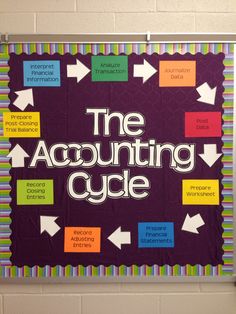Accounting activities are crucial in both understanding and practicing essential financial management concepts. Incorporating engaging and insightful activities can make learning about accounting more enjoyable and practical. Here are 20 accounting activity ideas for various skill levels, from students to professionals.
1.The Lemonade Stand: Simulate a basic business by setting up a virtual lemonade stand. Track expenses, revenue, and calculate profit or loss at the end of a period.
2.Personal Budgeting: Have participants create their monthly budgets, including income, expenses, and savings goals.
3.Tax Simulation: Walk through the process of preparing a tax return using fictional information.
4.Invoice Preparation: Practice creating detailed invoices using standard formats or templates.
5.Bank Reconciliation: Conduct a bank reconciliation activity using mock banking transaction records and account balances.
6.Financial Statement Analysis: Review sample financial statements and identify areas that need improvement or potential red flags for audit.
7.Inventory Management: Simulate managing a store’s inventory using different methods such as FIFO or LIFO, tracking costs and quantities on hand.
8.Depreciation Calculation: Using given fixed assets information, participants will calculate depreciation expenses using various methods like straight-line or declining balance method.
9.Break-Even Analysis: Calculate the break-even point for a hypothetical business to determine sales volume needed to cover costs.
10.Payroll Processing: Apply payroll calculations by incorporating basic tax rates and deductions for fictional employee scenarios.
11.Cash Flow Forecasting: Create cash flow projections based on current revenue, expense data, and anticipated future changes in the business environment.
12.Ratio Analysis: Analyze financial ratios such as current ratio, debt-to-equity ratio, and return on investment (ROI), interpreting results for improved financial decision-making.
13.Credit Control Simulation: Prepare a credit control policy for a hypothetical company to manage debtors effectively.
14.Budget Vs Actual Analysis: Compare budgeted and actual expense numbers to identify discrepancies and make adjustments as needed.
15.Cost Allocation: Assign indirect costs such as rent and utilities to different departments based on a given allocation method.
16.Mock Audit: Simulate a business audit where participants act as auditors and review a company’s financial records to detect errors or discrepancies.
17.Cash vs Accrual Accounting: Discuss the differences between cash and accrual accounting systems and determine which system is more suitable for different scenarios.
18.Variance Analysis: Examine variance between budgeted and actual costs, discussing reasons behind deviations and possible corrective actions.
19.Expense Classification: Categorize expense items in given samples based on their respective accounting classifications such as operating, financing, or investing activities.
20.Annual Report Breakdown: Review an actual public company’s annual report, including understanding auditor opinions, financial statements, notes, and the MD&A section.
Incorporating these accounting activities into your learning or professional environment will enable a deeper understanding of crucial accounting concepts, organizational financial management, and decision-making skills.





